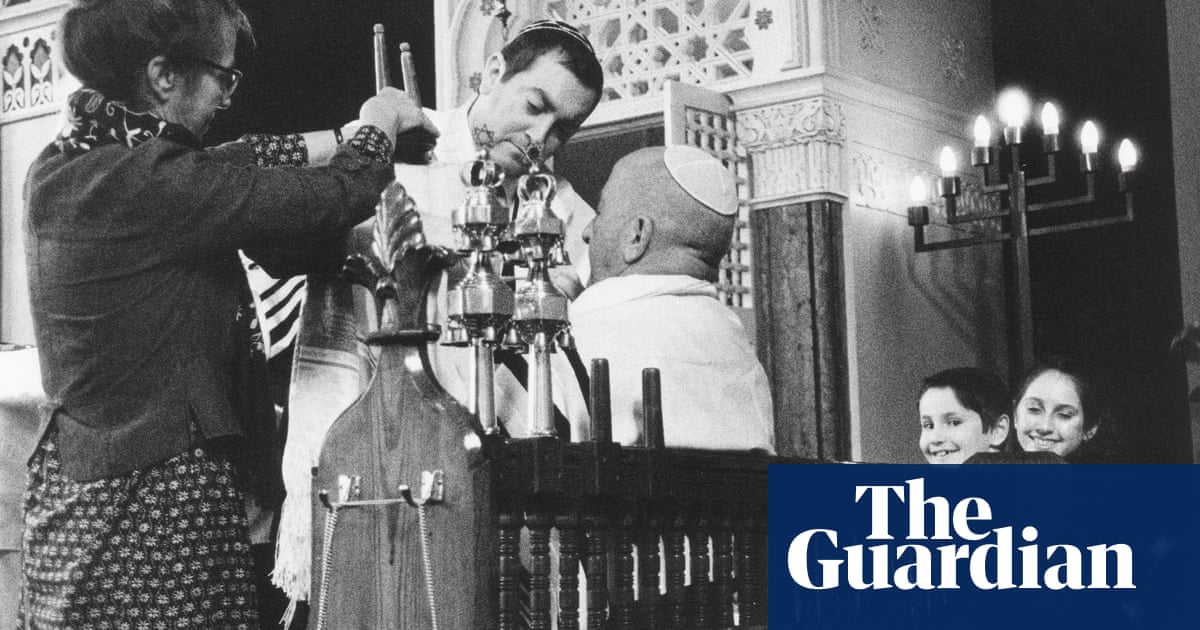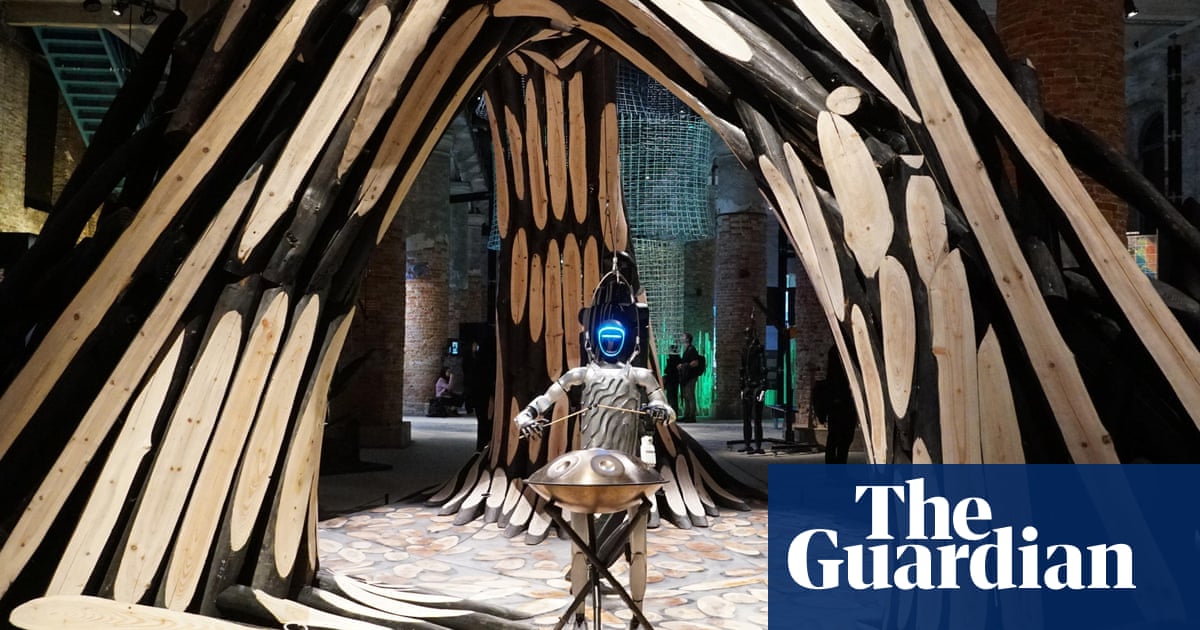To be selected for Granta’s Best of Young British Novelists list two years before your debut novel comes out must bring a certain amount of pressure. Saba Sams had already been named a rising star for her short-story collection, Send Nudes; one of the stories, Blue 4eva, won the 2022 BBC National short story award. Now comes Gunk, titled for the grotty student nightclub managed by the thirtysomething protagonist, Jules. The fried egg on the cover hints at a sleazy edge: expect hangover breakfasts with a dawn chorus soundtrack. It’s also a playful nod to more tender themes of fertility panic, unplanned pregnancy and young motherhood.
At the heart of Gunk is a not-quite-love-not-quite-triangle between Jules, her feckless ex-husband Leon, nightclub owner and irredeemable waster, and the young, mysterious nim – that lower case “n” is all part of her vibe. Nim arrives one night at the club and captivates both Jules and Leon with her shaved head, her alluring mouth (“big and wet and laughing”), and the sense that she’s on the run from her old life. Much of the novel is told through flashback. Before we encounter nim at the club, we know that she has had a baby, left him with Jules, and vanished. Jules is alone trying to comfort a newborn that “knew by smell, by taste, that I was not his mother”. The main narrative consists of Jules telling us how this state of affairs came to pass.
The summary of Jules’s and Leon’s relationship is characteristically wry. Failed DJ Leon is your quintessential booze-addled fuckboy, past his prime, charismatic but chronically unfaithful. Whenever he takes cocaine, he tells the student girls about the hole in his heart, diagnosed as a baby. “But it still works and everything?” one of them asks Jules. “I’d shrugged a shoulder. By that point, Leon and I had been married four years. Debatable, I’d said.” Lines like this are a reminder of the humour and freshness that made Send Nudes so entertaining and insightful.
Sams’s vivid descriptions of Gunk, a dingy club that stinks of skunk and bubblegum vape and has portable toilets in the smoking area, will spark powerful memories in anyone who has worked in late-night hospitality. What a pleasure, also, to read about characters who aren’t burdened by the weight of their own educations. Sams knows that the people with the best stories are the barmaids, the bouncers and the dish pigs, not the privileged students who patronise the club. “She hadn’t learned to pontificate, to babble,” Jules says of nim. “That was what all these kids really studied at university, I was sure: how to sound smart, whether or not they actually were.”
Indeed, Sams’s choice of setting brought to mind another writer who started young, Gwendoline Riley, whose 2002 debut, Cold Water, centred around a Manchester dive bar. Sams shares that picaresque interest in the transient world of barmaids and the barflies that buzz around them, and some of Riley’s dry humour. “I always thought this was extreme behaviour, vaguely American,” Jules remarks of the fact that Leon’s mother sends him a hamper every Christmas. Of Brighton: “We could have been in Paris, if it wasn’t for all the Tescos.”
Sams’s novel is a plottier, more commercial endeavour, however. It lacks the strangeness and some of the humour of Send Nudes, and at times the characterisation feels too reminiscent of short fiction. I found myself wanting a more intimate (dare I say novelistic) exploration of Jules’s maternal longing. There’s nothing wrong with telling rather than showing – some of the most interesting authors are tellers – but being given most of Jules’s and Leon’s marriage as backstory means that we lose a certain viscerality in that retelling. We know Jules desperately wants a baby, but we don’t quite feel it with her.
Saying that, Jules’s reticence, her unwillingness to allow herself to need anyone, is vital to her character arc, and I don’t doubt that Sams knew what she was doing. She’s a skilled writer, sometimes a sublime one, as when, for example, she describes nim’s unborn baby kicking: “a sliding, continuous hardness that came once and then again, muscular as an eel beneath the skin”. The way she relates labour, birth and newborns (“a blue squirm, soaking wet”) is a mark of her talent and will make you forgive her occasional lapse into cliche.
At the heart of Gunk is a profound message about the insufficiency of the nuclear family, and a suggestion of possible alternatives. It’s a radical thought, one that Sams is well placed to articulate, and she does so with tenderness. I am certain that with room to experiment, if she leans into her instinct for the eccentric and the uncomfortable, there will be much more acclaim to come.
Gunk by Saba Sams is published by Bloomsbury (£16.99). To support the Guardian order your copy at guardianbookshop.com. Delivery charges may apply

.png) 7 hours ago
7
7 hours ago
7













































